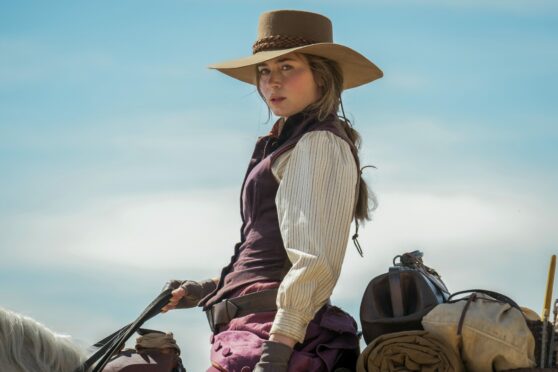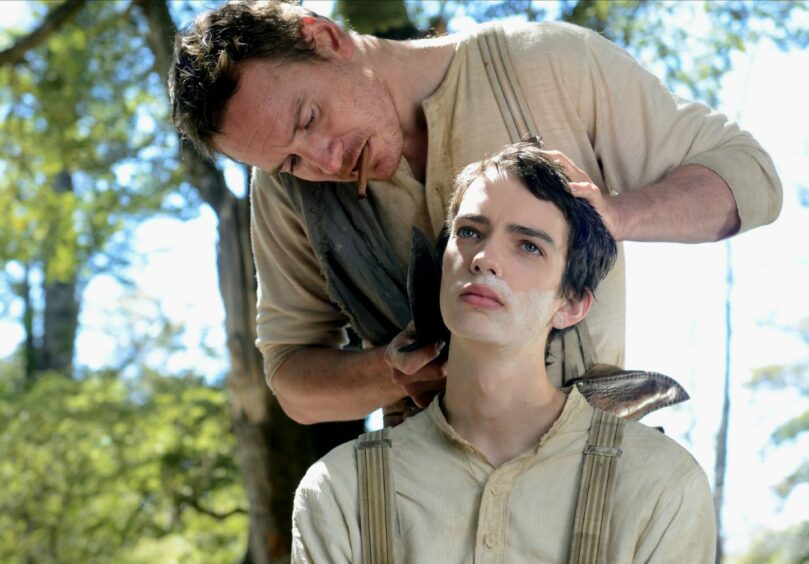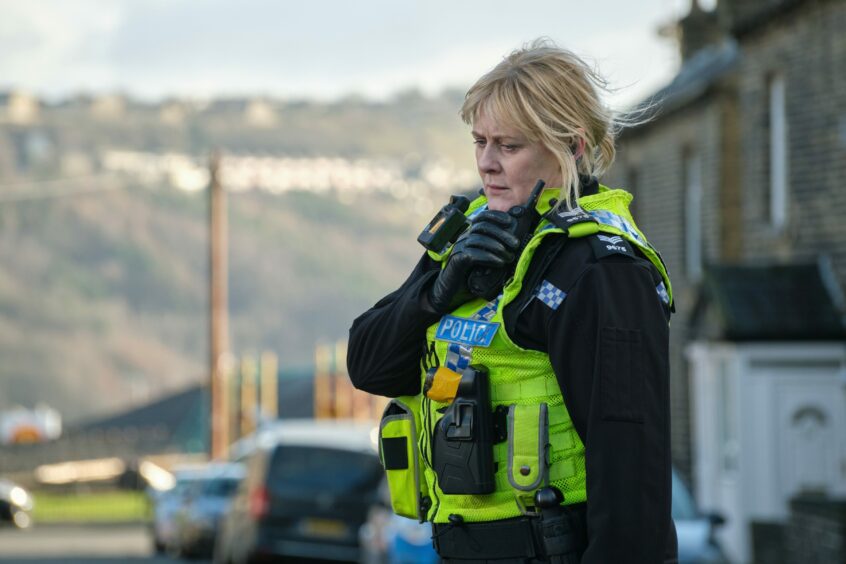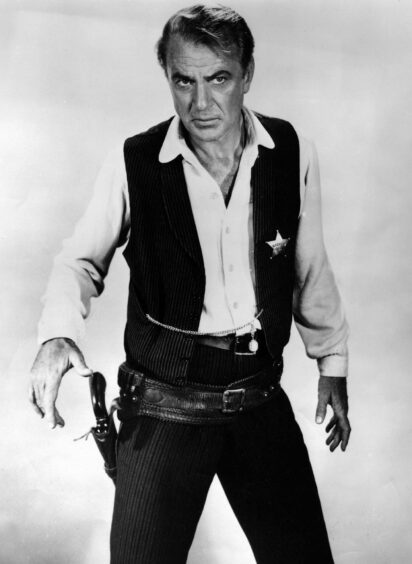
A dramatic jail breakout and a lone, laconic sheriff waiting for a final showdown with the outlaws while calming a family who just don’t understand that a man – or, in Happy Valley’s case, a fearsome, fearless woman – has gotta do what a man’s gotta do.
The hit BBC drama currently thrilling fans on Sunday nights may not have any horses or 10-gallon hats but many viewers recognise a Western when they see one. There are, however, plenty of proper cowboys on the range as the genre enjoys yet another comeback.
The English starring Emily Blunt was a recent hit for the BBC, winning critical acclaim while vengeful anti-hero Django is back next month in a big-budget revisionist Western series on Sky Atlantic.
Movie director John Maclean is not surprised by the enduring appeal. He chose to set his first film Slow West, starring Michael Fassbender and Ben Mendelsohn, in the wild frontier, in 2015 when the demise of the Western was again being predicted after a couple of box-office flops.
“Most first-time directors gravitate toward little urban dramas but I thought why not do a Western?” he said. “When I pitched Slow West there weren’t really any coming out. The genre was maybe almost killed off by the big-budget Western, like the remake of Lone Ranger or Wild West West. Neither did very well.
“There’s something about the Marvel blockbuster scale which doesn’t suit the Western. Despite the wide-open spaces, the big canvases, you can see in films like High Noon or My Darling Clementine: good Westerns tend to be a lot more intimate.
“The Western was seen as a bit of a dead genre but it keeps on creeping back again. There’s a lot of myth-making of America. But then it’s a country which was sort of in charge of making myths for a while, because it was making itself. Westerns were America rewriting its own story and its own history.”
The gun-slinging cowboy on a horse traversing the open plain was a Hollywood staple before movies even had sound. Over the decades the form evolved from classic tales of white hat-wearing good guys standing up to “savage” Native Americans or thugs in black hats; in 1968, thanks to the revocation of the restrictive Hays Code, a new breed of Westerns with morally ambiguous heroes, like Clint Eastwood’s Man With No Name, or Django, emerged.
The revisionist Western became a genre in its own right. Maclean, however, believes drawing a distinction between supposedly uncomplicated older movies and morally ambiguous modern Westerns is too simple.
“I feel every Western that’s ever been made is revisionist in a way,” he explained. “If you look at High Noon it was politically interesting about the time in which it was made, and was made in the shadow of the McCarthy witch hunt going on in the USA.
“Then to follow that, in the ’60s, America was going through Vietnam so you had the violence of The Wild Bunch, and in the ’70s the hippy movement creeped in with McCabe & Mrs Miller. In the ’80s the flashy Top Gun style arrived with Young Guns.
“I feel like some Westerns are dismissed as old-fashioned but really, whenever they were made, they always have a contemporary spin on them to reflect the times.”
His Slow West dealt with a forgotten reality of the old frontier. Most Westerns over the decades have starred Americans, from Gene Autry to Jamie Foxx yet real cowboys were unlikely to be speaking with a Texan drawl.
“Most of the Westerns you see are full of Americans but then you start reading about authentic old West,” he said. “They were all Irish or Scottish. In fact most cowboys were German.
“I thought Slow West should be a Western with Scots, Irish, Scandiniavians and Africans because that’s probably what the West looked like.”
That’s not to say the genre itself doesn’t divide opinion. Two of its biggest stars, John Wayne and Clint Eastwood, have been vocal Republicans and the macho themes in Westerns seem, to some, inherently conservative.
“Dig down into the mythology of Westerns and you get to something quite right-wing I think,” said film-maker and critic Mark Cousins. “There’s the loner with his gun, defending his patch of ground, unwilling to cooperate and suspicious of anyone who appears on the horizon.
“Westerns really appeal to introverts, or people for whom crowds are too much. If you think about it, thrillers, musicals, melodramas and comedies are full of people but Westerns are kind of empty, and that solitude is appealing.
“The Westerns that excite me now are the ones which feel the force of the traditional Western, but then mess with it.
“So, for example, Johnny Guitar is for me maybe the best Western, because the main guy is… a woman, in Joan Crawford. And that isolationism and hatred found in the genre has, in Johnny Guitar, become hysterical.”
Maclean pointed out that even Clint Eastwood, Spaghetti Western superstar, eventually made Unforgiven in 1992 which had a more thoughtful approach to vengeance and the myth of the righteous cowboy. It won an Oscar, and is considered one of the finest Westerns ever made.
The American isolationism popular in Westerns was identified by other directors who explored – and exploded – the myth of the powerful tough guy vigilante, added Cousins.
“In a way, Martin Scorsese’s Taxi Driver is about the hysteria of other people, the desire to be alone in one of the busiest places in the world, Times Square,” he said.
“In the same way a Western’s message is often simply ‘leave me alone’. Unless it’s Rio Bravo…”

Enjoy the convenience of having The Sunday Post delivered as a digital ePaper straight to your smartphone, tablet or computer.
Subscribe for only £5.49 a month and enjoy all the benefits of the printed paper as a digital replica.
Subscribe © Allstar/SEE-SAW FILMS
© Allstar/SEE-SAW FILMS © BBC/Lookout Point/Matt Squire
© BBC/Lookout Point/Matt Squire © Stanley Kramer/United Artists/Kobal/Shutterstock
© Stanley Kramer/United Artists/Kobal/Shutterstock